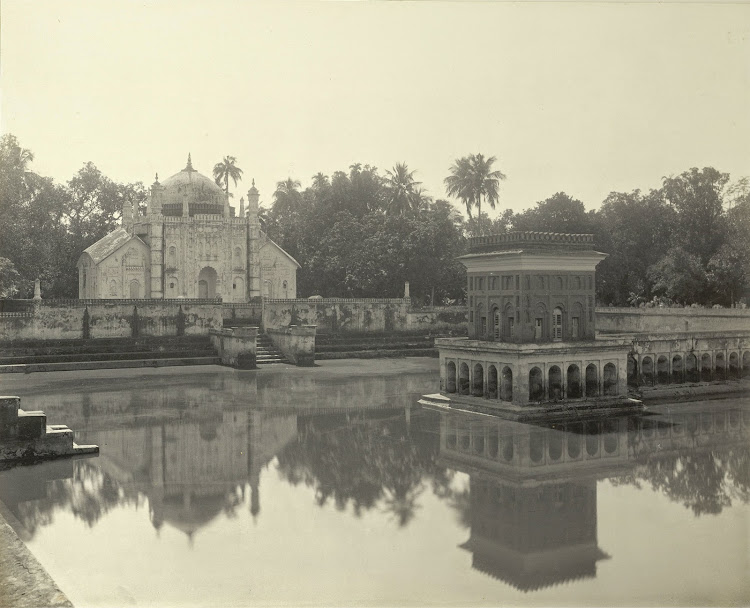Mahtabmanzil
The Thara Palace was built in the 19th century in a European style. It used to have a fine collection of pictures of British painters such as the Daniells, Chinnery and Tilly Kettle. The building now houses the University of Burdwan.
The Palace from the north side
The college was founded by the Maharajas of Burdwan in 1817 as an English Vernacular School. It was recognized as College in 1881.
The Aftab House on the banks of the Kishensagar Lake
Khaja Anwar Shahid was a servant of the Emperor of Delhi. He fell in some battle near Burdwan. In consideration of his services the Emperor Ferokh Shah built a tomb over his remains at a place now known as Ber, a quarter of the present town of Burdwan; and granted to the Khaja's family five mauzas for the purpose of maintaining the tomb in the manner usual among Muhammadans. This is said to have been in 1127 Hijri." The tomb (c. 1698) is flanked by a mosque on one side and a madrasa or college on the other.
The mausoleum of Khoja Anwara (from across the tank)
This is one of the most important of the ancient archaeological remains in the district, and its origin its traced by tradition as far back as the reign of the Emperor Akbar, about 300 years ago. It was erected in 1574 A.D. in honour of a Muhammadan poet named Bahram Sakka (water-carrier), who died at Burdwan while on his way from Agra to Ceylon." The complex also has the tombs of Kutubuddin, the Subhedar of Burdwan, and Sher Afghan, who was the Governor of Burdwan and the first husband of Nur Jahan (the wife of Emperor Jahangir).
Distant view of the Palace across the Sulipukur Tank
An avenue on the banks of the Manoshsarovar Tank in Dilkusha Gardens
Deodar Avenue in Dilkusha Gardens
View on the moat in Dilkusha Gardens
Source: British Library





















